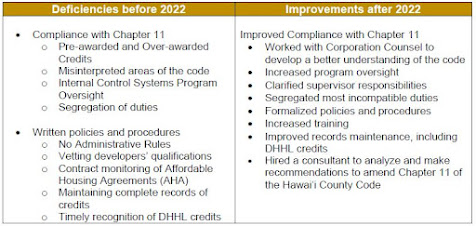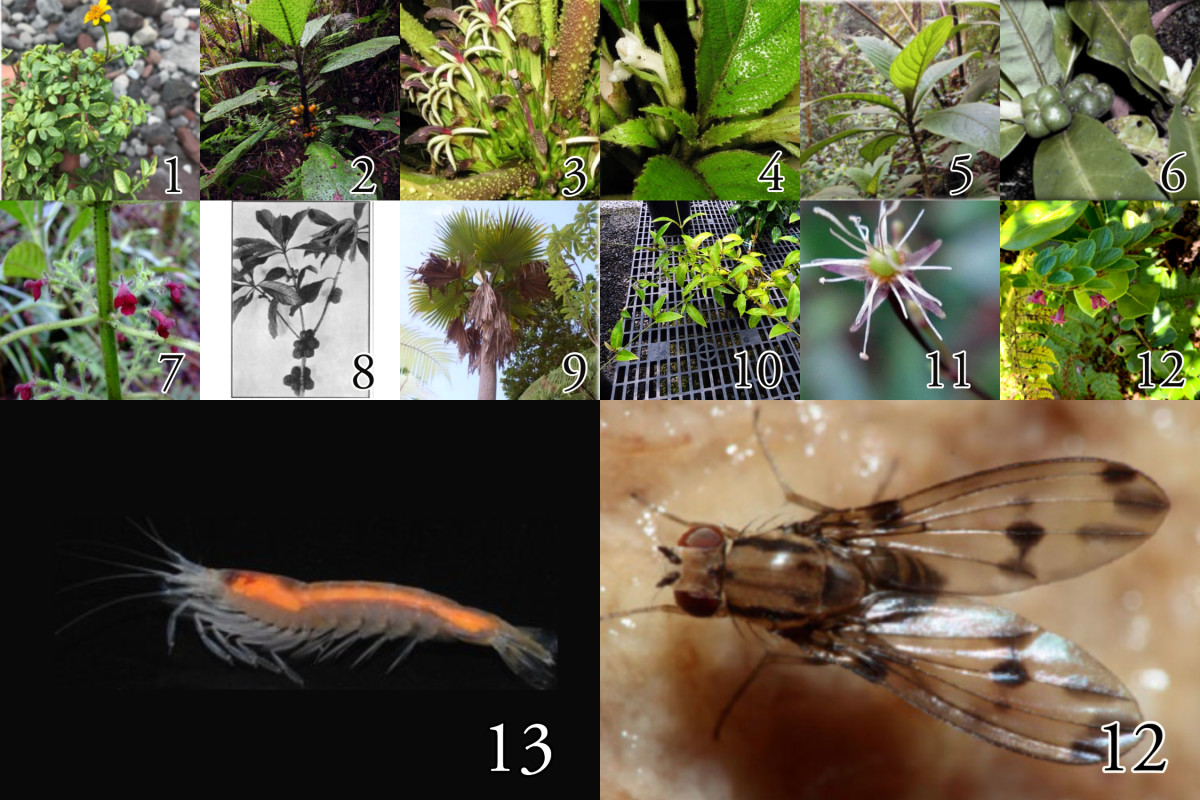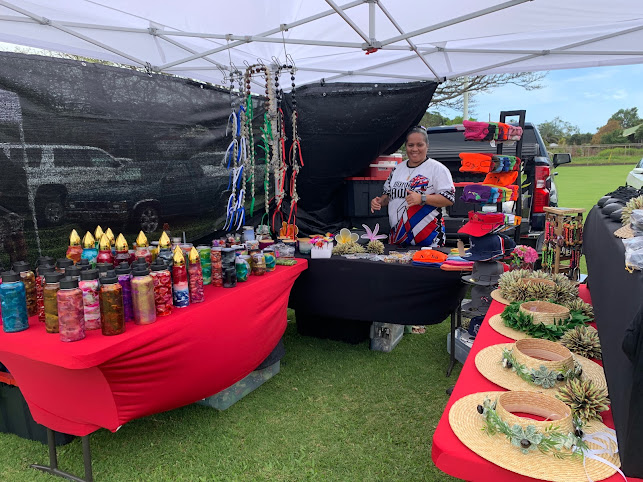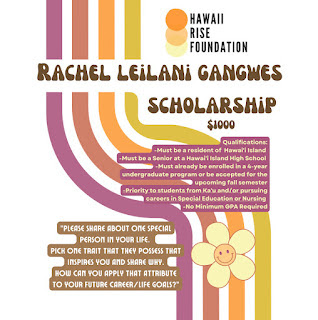 |
| Prosecuting Attorney Kelden Waltjen |
"Results also showed that an overwhelming number of participants support the relocation of the Hawai‘i Community Correctional Center and the construction of new correctional facilities on Hawai‘i Island.
"A large percentage agree on the importance of prioritizing increased funding for substance abuse and mental health treatment on Hawai‘i Island. Lastly, the results demonstrate that a large majority of Hawai‘i Island residents agree with our Office that custody determinations should be evaluated on a case-by-case basis. Hawai‘i Island residents do not believe that defendants should be automatically released even if charged with only 'non-violent' misdemeanor and/or felony offenses."
The Prosecuting Attorney said data from the survey has been shared with Hawai‘i Island state Representatives and Fenators, Hawai‘i County Council, and the Mayor’s Office. "We hope this data assists our state lawmakers and county officials in advocating for the best interests of Hawai‘i Island. Data from our Office’s survey last year was instrumental in the passage of new legislation, including a class B felony offense for automobile and motorcycle theft and a new felony offense for dog attacks resulting in serious bodily injury or death."
Affordable Housing Credits are designed to help to provide "decent housing, suitable living environments, and the expansion of economic opportunities." OHCD’s Planning Branch administers the affordable housing policy through Chapter 11, Hawaiʻi County’s Affordable Housing Policy, which mandates inclusion of affordable housing in and throughout various market developments, including rezoning. It provides a means for developers to satisfy affordable housing obligation through seven options: developing finished lots, selling, or renting the required units on or off-site, conveying land or infrastructure, or purchasing affordable housing credits.
In September 2022, Hawai‘i County Council’s Resolution No. 467-22 requested the Office of the County Auditor conduct the performance audit.The report lists deficiencies and improvements.
Mayor Mitch Roth. He vetoed Bill 194 this week, citing concerns over the Bill's potential impact "on the County's ability to condition rezoning ordinances, provide affordable housing, and facilitate development projects."
In correspondence to the Council, the Mayor contended that the Bill "would add expense, uncertainty, and difficulty to the rezoning process, limiting the County's flexibility to condition rezoning ordinances appropriately. Furthermore, the Bill would impede the County's ability to provide residents with housing and facilities like hospitals, schools, and job centers, ultimately punishing unsophisticated applicants and adding unnecessary costs to the development process."
The Mayor's recommendation is not to pass Bill 194 in any form and allow the existing process to remain in place. He emphasized his administration's commitment to providing housing for residents and noted that the Bill would impede the County's ability to achieve that goal.
"The decision to veto the Bill comes after careful consideration of its potential impact on the County's planning and zoning processes. Mayor Roth hopes that the Council will work collaboratively with his administration to find alternative solutions to address the issues the Bill aimed to resolve," says the statement from his office.
To read comments, add your own, and like this story, see facebook.com/kaucalendar. See latest print edition at kaucalendar.com, in the mail and on stands.
"GOOD GOVERNMENT BILLS" is the term Gov. Josh Green, M.D. used for seven that he signed into law on Friday, "to advance the goals of ethics, lobbying, and campaign spending laws in Hawai'i.'Green said, "The people of Hawaiʻi deserve a transparent and accountable government. I said it during my time as Lt. Governor, I said it during my campaign, and I have repeated it many times, including in my State of the State address, because I believe it is a critical part of effective government that delivers for our people.
"The bills I have signed into law today were crafted by many great and collaborative minds and will
 |
| Gov. Josh Green signs seven bills into law on Friday regarding validation of ballots, campaign spending, fundraisers, lobbying and gifts to public officials. Photo from Gov. Green |
The State's Campaign Spending Commission, Ethics Commission, and Office of Elections asked House Speaker Scott Saiki to introduce them.
Hawai'i Island's Rep. David Tarnas, who serves as House Judiciary and Hawaiian Affairs Committee chair, and Sen. Karl Rhoads, chair of the Senate Judiciary Committee, attended the bill signing along with collaborators, including retired judge Daniel Foley, who served as Chair of the Commission to Improve Standards of Conduct; Robert Harris, executive director of the State Ethics Commission; Kristin Izumi-Nitao, executive director of the Campaign Spending Commission, and Janet Mason, member of the League of Women Voters of Hawaiʻi Legislative Committee, among others. Here are the bills signed into law:
HB90, Relating to committee fundraisers: Amends the definition of "fundraiser" under Election Laws to include all functions held for the benefit of candidates, candidate committees, and noncandidate committees, regardless of the price or suggested contribution for attending the function. The aim is to further public transparency and improve public confidence in campaigns by requiring a notice of intent to hold a fundraiser for which any price is charged or any contribution is suggested for attendance.
HB93, Relating to organizational reports: Requires the Campaign Spending Commission to publish on its website the names of candidate and persons who qualify as noncandidate committees who fail to file an organizational report or a corrected organizational report with the Commission. The aim is to improve compliance with filing requirements and bring awareness of noncompliance to the public. Publishing the names of noncandidate committees who fail to file an organizational report will motivate these committees to do so.
HB99, Relating to limiting a campaign's acceptance of cash contributions: Limits to $100 the total amount of cash a candidate, candidate committee, or noncandidate committee may accept from a single person during each election period. The aim is to imposes limitations similar to those placed on anonymous cash contributions, thereby making violations of campaign finance law easier to detect and prevent.
HB130, HD1, Relating to validation of ballots: Shortens the deadline for the validation of ballots following an election. The aim is to align the deadline by which voters must cure any deficiency with the return envelope with the deadline for the county election divisions to validate ballots.
HB137, HD1, Relating to lobbyists: Beginning 1/1/2025, requires the statement of expenditures filed by
lobbyists and other persons who engage in lobbying activities to include certain information on the identity of the legislative or administrative action that was commented on, supported by, or opposed by the person filing the statement during the statement period.
The aim is to provide greater transparency on lobbying activities by requiring specific information on the legislative or administrative action lobbied on, instead of a broad subject area.
HB140, Relating to record disposition: Provides the State Ethics Commission with the discretion to maintain or destroy records of financial disclosure statements beyond the current six-year statutory requirement. Applies retroactively to applicable disclosures that are in the Commission's possession and control.
HB142, Relating to gifts from lobbyists: Prohibits lobbyists from making gifts that are prohibited under state ethics law. Improves standards of conduct by prohibiting lobbyists from making certain gifts to legislators and state employees. The law lessens the number of situations where a legislator or state employee must refuse a prohibited gift.
To read comments, add your own, and like this story, see facebook.com/kaucalendar. See latest print edition at kaucalendar.com, in the mail and on stands.
HAWAI'I VOLCANOES NATIONAL PARK FLIGHT OPERATIONS FOR APRIL ARE ANNOUNCED:
April 3 between 7:30 a.m. and 1 p.m. to service the radio repeater near Mauna Loa summit, and to assess Mauna Loa Cabin and trail.
April 11 between 6:30 a.m. and 8:30 a.m. for Kahuku ungulate survey between 4,000- and 6,500-ft. elevation.
April 19, 24 and 27 between 7 a.m. and 1 p.m. to remove old fence material at the Great Crack fence line between 1,000- and 2,500-ft. elevation.
 |
| The Great Crack area of Hawai'i Volcanoes will receive a cleanup of old fencing on its boundary by helicopter in April. USGS photo |
LOW-LEVEL HELICOPTER FIGHTS OVER KILAUEA CALDERA, the volcano's summit area, and rift zones will be conducted by U.S. Geological Survey Hawaiian Volcano Observatory on the following dates:
April 17 and 18 between 7 a.m. and 2 p.m. multiple flights are planned by USGS to deploy temporary seismic instruments in Kīlauea caldera areas south of the crater to the 3,300-ft. elevation, and in the upper East Rift Zone to the 3,200-ft. elevation.
April 28 between 11 a.m. and 12 p.m. multiple flights with several external loads are planned by USGS to deploy temporary seismic instruments in areas south of Kīlauea caldera to the 3,250-ft. elevation.
USGS may conduct additional flight operations over Kīlauea and Mauna Loa to assess volcanic activity and maintain instrumentation. See more at www.nps.gov/havo
.jpg) |
| https://www.okaukakou.org/scholarships-for-local-students |








.png)

.jpg)






.JPG)








.png)








